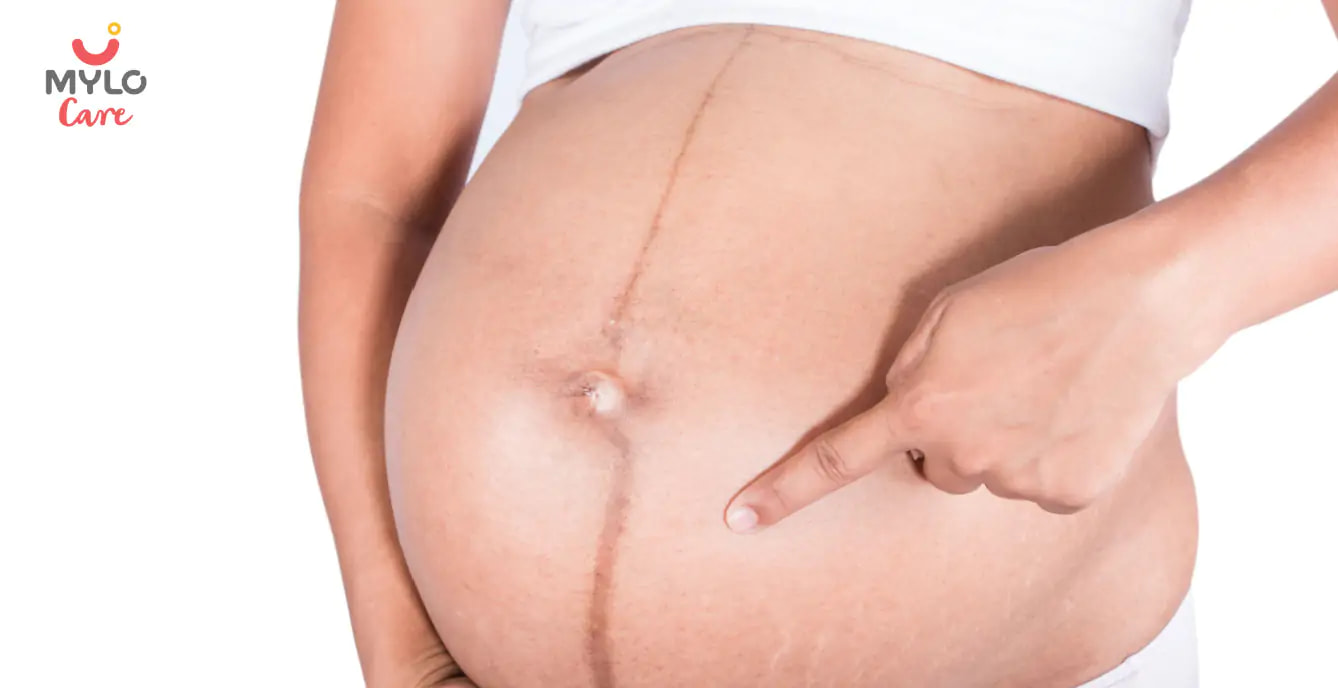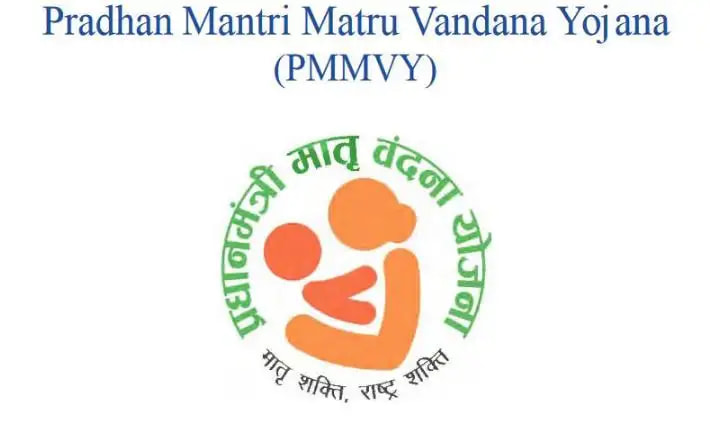Get MYLO APP
Install Mylo app Now and unlock new features
💰 Extra 20% OFF on 1st purchase
🥗 Get Diet Chart for your little one
📈 Track your baby’s growth
👩⚕️ Get daily tips

OR


Pregnancy
Congrats on your exciting news! Now that you've learned you're expecting, there's so much to keep track of during each stage of your pregnancy. Turn to our pregnancy articles and videos for everything you need to know about the next nine+ months and beyond.

IDEAL HEIGHT
IDEAL WEIGHT
Baby Size this week:
Read more this week
Trending articles & Videos in pregnancy
Most read articles in last 24 hrs
Linea Nigra
Everything You Need to Know About Linea Nigra, the Line Around Your Belly
Baby Movements
Baby Kicking During Pregnancy: Unveiling the Wonders of Quickening in Pregnancy
Government Policies & Schemes
Pradhan Mantri Matru Vandana Yojana (PMMVY) to Give Rs 5,000 to Pregnant Women
Second Trimester
Why is the Second Trimester Anomaly Scan Important During Pregnancy?
Due Date
Know Why Your Doctor May Change Your Due Date During Pregnancy
Scans & Tests
What Is a Doppler Scan? Discover the Risks Involved & Why Is It Important for You?
Helpful tools for your pregnancy journey
Pregnancy Tools

contraction timer
Calculate your due date
Prepare for baby's arrival with Mylo Due Date Calculator. Learn your due date and begin the countdown to the big day!
When did your last period start?
Please add info above to calculate your due dateRECENTLY PUBLISHED ARTICLES
our most recent articles

How Climate and Seasonal Shifts Influence RSV Transmission and Outbreaks

Understanding RSV And Its Long-Term Impact On Lung Health In Preterm Infants

Preventing Respiratory Syncytial Virus (RSV) In Preemies: Essential Steps For New Parents

How Respiratory Syncytial Virus (RSV) Impacts Premature Babies Differently: What Every Parent Needs To Know

The Ultimate Guide on Cabbage During Pregnancy Benefits and Precautions

The Pros and Cons of Consuming Brinjal in Pregnancy
- A Mom-to-Be's Handbook to Safely Savoring Momos in Pregnancy
- Pizza During Pregnancy: Cravings, Comfort, and Caution for Moms-To-Be
- The Ultimate Collection of Arabic Baby Names and Their Meanings 2024
- The Ultimate Collection of Sanskrit Baby Boy Names 2024
- 50+ New Born Baby Wishes to Congratulate New Parents
- The Ultimate Collection of Baby Girl Names in Sanskrit 2024
- Welcoming New Born Baby Quotes to Celebrate Life's Greatest Gift
- It's a Baby Girl! 50+ Ideas for Announcing Your Daughter's Birth
Top Community Discussions under pregnancy

yatimunsanadi
mother
Hi team, kya ap mese kisi ko aisa ho rha hai ki khana khane ke baad pura pet tight ho jata hai and jb tk stool pass n ho thoda uncomfortable feel hota rhta hai. Bar bar stool pass krne jane ka man krta hai. Muje last 2 days aisa ho rha hai. Ye normal hai kya.
 8Answer
8Answer
k957
mother
179 bpm during 8th month of pregnancy is this normal heart beat or not?
 7Answer
7AnswerRecently asked questions
Asked when 10 weeks pregnant
Hlo to be moms....i hv a query...in my 9.5 wk i feel body joint pain like in ankle, knee, wrist, shoulder, toes....pain intensity is high...i cnt sleep....what should i do pls help....cn i cosult my doc.
Asked when 23 weeks pregnant
Kon kon c chije aisi hai jo pregnancy mei gas acidity jalan karti hain... Koi btayega plz bcz mujhe aksar khane ke baad hi samagh aata hai ki is chij se gas acidity jalan ho gyi hai. Please share your knowledge
Asked by 39 weeks pregnant
Hi all... Mujhe na boht thoda sa white discharge ho rha h.. Kya mucus plug aa gya h?
Popular topics for pregnancy
Topics you don't want to miss

Frequent Urination During Pregnancy: Causes, Treatment & When to Call a Doctor
14 tips to get relief from morning sickness during your first trimester of pregnancy
Are You Aware of These 11 Early Signs and Symptoms of Pregnancy?
Explore Topics in Pregnancy
Why Parents Love Us



AWARDS AND RECOGNITION
Mylo wins Forbes D2C Disruptor award
Mylo wins The Economic Times Promising Brands 2022
AS SEEN IN
















At Mylo, we help young parents raise happy and healthy families with our innovative new-age solutions:
- Mylo Care: Effective and science-backed personal care and wellness solutions for a joyful you.
- Mylo Baby: Science-backed, gentle and effective personal care & hygiene range for your little one.
- Mylo Community: Trusted and empathetic community of 10mn+ parents and experts.
Signs & Symptoms of Pregnancy
Pregnancy brings in a feeling of joy and completeness but carries along a few symptoms that make a woman uncomfortable and exhaustive. Let's discuss a few symptoms which denote early signs of pregnancy following which one can consult a doctor and go for a proper check-up.
Tiredness
Pregnancy brings along a lot of hormonal changes that lead to exhaustion or the feeling of tiredness. This is most aggravated in the first 12 weeks of pregnancy and usually settles down with the onset of the second trimester.
Morning sickness
It is a condition that occurs somewhere around 9 weeks of pregnancy and exists either till the end of the first trimester or throughout pregnancy for some women. Morning sickness is a condition where a woman enters an uncomfortable zone with nausea, vomiting, extreme sense of smell. It is one of the early signs of pregnancy like missed periods.
Constipation
Constipation is a common but unpleasant part of pregnancy that can be dealt with by having an active lifestyle and adding a lot of fibrous food to your diet. Have plenty of fruits and vegetables and lower down with junkies. Your worry and anxiety about pregnancy can add up to constipation. So, Relax! And try to indulge in whatever keeps you happy.
Pelvic Girdle Pain
Pelvic pain during the course of pregnancy or after delivery is the pain observed by 1 in 4 women around the pelvic joints (below the abdomen around the hip joints), lower back, hip, and thighs. It can vary from mild to severe and occurs in response to the loosening of the ligaments due to pregnancy hormones and growing baby weight.
Back Pain
Along with nausea, back pain is also one of the early symptoms associated with pregnancy and this happens because of the softer ligaments now. These ligaments keep on stretching with time and put a strain on the lower back and pelvis joints, giving back pain. During 1st trimester, stress & hormonal changes are the contributing factors while expanding the uterus contributes to back aches in the second trimester.
Braxton Hicks Contractions
These are the less intense contractions that occur during pregnancy and are mistaken as true labor contractions. Such contractions are irregular in frequency and usually settle down with a change in position.
Low Blood Pressure
Low blood pressure is experienced by most women during the first 24 weeks of pregnancy and is not a cause of concern. It happens as the body works to pump more blood to the fetus. It can be corrected by simple measures at home. But below a certain limit, it can result in significant health issues and must be treated by a doctor. So, keeping a track of symptoms is very important.
Increased Urinary Frequency
As your uterus and baby grow, they put pressure on the bladder, thereby causing an increased frequency of urination. It is more common during early pregnancy because of the increase in progesterone hormones but may reappear later.
Urinary Tract Infection
Having a UTI during pregnancy is a cause of concern. If you have a burning sensation while urinating, or your bladder feels full even after passing the urine, you cannot control the urge to urinate and the urine is smelly and cloudy, then these are the few symptoms that indicate having UTI. This usually happens because women face challenges in keeping their perineal area clean because of the baby bump.
Varicose Veins
Increased volume of blood flow usually enlarges the veins in the leg area and they swell. Such a condition is known as varicose veins. The growing baby bump also presses the large blood vessels in the pelvis area. If the veins turn red or are giving pain, then one should consult a doctor.
Haemorrhoids
When the vein in and around the anus and rectum swells, it causes haemorrhoids. They can be internal or external and can be very painful. It is a common medical condition mostly in the third trimester of pregnancy or shortly after childbirth. If not that painful, they can be treated with home remedies and little lifestyle changes.
Stretch Marks
Stretch marks are streaks or a type of scar that develops on the tummy area, upper thighs, or breasts in pregnant women mainly because of the stretch or shrink of our skin that happens quickly. They usually appear in the third trimester and are not painful.
Breast Tenderness
Being one of the earliest signs of pregnancy, it may appear way before you miss your period. Though it is not a definitive indicator of pregnancy as breast tenderness may happen due to some other reasons as well. But if pregnant, breasts become tender as early as one or two weeks after conception. It brings a little pain in the breasts.
Melasma
It is a cosmetic way for the body to respond to pregnancy. It is often known as the “mask of pregnancy”. Under this condition, the skin produces extra pigment and gives dark patches. This is an external thing and does not in any way affect the baby or impose any other complication during pregnancy. Melasma, in most cases, subsides a few months after delivery.
Pregnancy - The Three Trimesters
Pregnancy is a beautiful journey of developing & carrying an unborn baby in your womb stretched over a period of 9 months. These 9 months are divided into 3 stages called trimesters, each having a developmental milestone for the fetus. Each trimester lasts for about 12 to 14 weeks. The pregnancy onsets from the very first day of the woman’s last period and complete its full term in 40 weeks.
First Trimester (0 to 13 Weeks)
The first trimester is like creating a base. The body structure and organs of the baby are developed during this phase which gives a multitude of changes to a mother’s body both internally and externally. She might feel nausea, vomiting, a heightened sense of smell, and experience mood swings & fatigue. Women also do feel tenderness in their breast. For some, these changes subside with the first trimester while some may experience them throughout the period of 9 months.
Second Trimester (14 to 26 Weeks)
This is the phase of pregnancy that most women relish. Hence the name ‘Honeymoon of Pregnancy’. You normally would feel much better, sleep better, and feel fresh and more energetic. Though with an increasing baby bump, you might feel more pressure on the pelvic muscles giving back or abdominal pain and leg cramps. Constipation or heartburn is also normal in the second trimester. You also start experiencing your baby’s movement at this time. For the skin changes, stretch marks start appearing.
Third Trimester (27 to 40 Weeks)
Mumma, you are very close to holding your little one in your arms. There are major physical changes in your appearance. You might feel issues in turning sides while sleeping, swollen feet, frequent urination, shortness of breath, or haemorrhoids. Also, during this final trimester, your baby’s bones are fully formed. This is the time for excitement as are soon going to welcome your baby into this world.
Points to consider while Pregnant
Pregnancy is a phase that needs the utmost care for both babies in the womb and the expecting mother. To make this journey more joyful, safe and healthy there are numerous things that should be taken care of. We would be discussing them below so you do not miss any one of them.
Prenatal care
While you are in early pregnancy, numerous health check-ups are conducted. These check-ups come under prenatal care. It is very important to have proper prenatal care to avoid complications later in childbirth. Generally, women start their prenatal care in the first 6 to 12 weeks of pregnancy.
Nutrition
A healthy pregnancy demands good nutrition. It is one of the vital factors contributing to a smooth, happy, and healthy pregnancy. A balanced diet rich in all the nutrients should be the intake. Try including proteins, fruits, vegetables & whole grains, and cut down on sugar, packed food, and fats.
Weight gain
Pregnancy weight gain gives a feel-good factor. You actually feel your child growing inside your belly. Most of the pregnancy weight is gained during the second trimester. The ideal and healthy weight gain in the first trimester is around 500gm to 2 Kg following which a woman should gain 500 gm to a 1Kg weight every week to maintain a healthy pregnancy.
Medication
Remember! Not all medicines are safe during pregnancy, not even a simple painkiller should be taken without a doctor's consultation. There are times when you might feel under the weather, but still, never consume any over-the-counter medicine to heal. Although some medicines are considered safe to take while you are pregnant, still never hesitate to ask a doctor as most medicines taken during pregnancy cross the placenta and reach the baby. Some medicines may cause birth defects, pregnancy loss, prematurity, infant death, or developmental disabilities.
Recreational drugs
Consumption of illegal or street drugs during pregnancy can have a potentially serious effect on your unborn baby. You can expect a pre-mature birth that usually has a low birth weight or even a stillborn birth. Babies born to a woman who is still on recreational drugs while they are pregnant have been proven to experience behavior problems in early childhood.
Exposure to toxins
Toxins can be the chemicals used in your home, fumes around the area you live or it can be smoke and vaping. Very long-term exposure to such toxins can harm your unborn baby. The most commonly used cleaning agents at home contain fumes or chemicals, though many are still safe to use. Still consider wearing rubber gloves when you clean to reduce absorption through your skin. Smoking, alcohol, or vaping should be a complete No to keep your unborn safe from toxic hazards.
Sexual activity
As long as you are sailing through a healthy pregnancy, indulging in Sexual activity is absolutely okay. Your baby in the womb is developing well and is protected by the amniotic fluid in the uterus. The Uterus’s strong muscles also safeguard the baby against any sort of pressure during sexual activity. But if you have any sort of complication, it is always advisable to have gynecological consultation and get clarity.
Exercise
In a normal and healthy pregnancy, exercise is a good way to stay active. You can start with a light warm-up, drink enough water, and keep yourself hydrated before, during, and post-exercise. Light physical activity or regular exercise does not increase your risk of miscarriage, low birth weight, or early delivery. The only exercise that requires extensive jumping, hopping, skipping, or bouncing should be avoided. Yoga and stretching exercises are good to improve flexibility.
Sleep
A pregnant woman is recommended to have a sound sleep of about 7 to 9 hours each day. It is normal to feel exhausted and tired esp. In the first trimester, so taking proper rest will always help. A good sleep pattern even aids smooth labor and delivery than a tired body.
Frequently Asked Questions about Pregnancy
Parents-to-be are many times in a fix about what is wrong and what is right, esp. when it comes to their child. There are several questions that many expecting moms or parents are usually looking out answers for to. Or you may be young enough to have knowledge about what pregnancy actually is and how can it happen. We have listed a few to your benefit here.
How can I enjoy my pregnancy?
The key to happiness is to accept the changes that are coming your way, both physical and emotional. Create self-love and try to spend time with loved ones. For more of a physical feel-good factor eat healthily, stay hydrated, take your vitamins on time, and indulge in regular exercise. For sound mental health, practice yoga or meditation. It will help you stay calm and give a soothing effect within. Still, if you feel having bigger issues, don’t hesitate to talk to a therapist. And, last but not least prepare well in advance for your delivery, postpartum needs, and the newborn. This will save you from last-minute anxiety.
Can kissing cause pregnancy?
No, it is biologically impossible to get pregnant from kissing. Pregnancy can only occur if kissing is followed by intercourse, where a male’s sperm enters a woman’s vagina.
Can men get pregnant?
No, Men cannot get pregnant. Pregnancy can only happen in the uterus which is a womb where the fetus develops. And, Men biologically don’t have a uterus.
What causes a pregnancy?
In order for pregnancy to happen, sperm from a male body needs to meet up (happens during intercourse) with an egg developed in a female body. An egg is released from the ovary during ovulation. The sperm then fertilizes the egg. The fertilized egg then travels down & implants itself in the lining of the uterus. Successful implantation can take up to 2-3 weeks after sex, and hence results in pregnancy.
What is pregnancy risk?
The term pregnancy risk indicates a condition where either an expecting mother or her unborn child or both are having some health issues which can be hazardous to one or both. There can be many contributing factors that may lead to pre-term labor. Such pregnancies should be closely and regularly monitored to reduce the chance of complications.
When is pregnancy safe?
The first trimester is known to be the most crucial or tender phase. As per medical science, a pregnancy settles down to the safe zone in 12 weeks. Though a woman needs to be cautious and take care throughout 9 months, as miscarriage can happen at any point during gestation.
Can a girl get pregnant without losing her virginity?
Yes! The chances cannot be ruled out though it is less likely. Pregnancy can happen through any activity which introduces sperm to the vaginal area, even without penetration.
What is the hardest part of pregnancy?
The first trimester which ranges from 0 to 13 weeks can be considered the hardest. The body takes time to adapt to the changes within. The hormonal fluctuations cause nausea, vomiting, fatigue, tender breast, and cramps in the expecting mother. At times, the woman also suffers from mood swings.
How can I massage my breast during pregnancy?
Massaging breasts during pregnancy has multiple benefits. Massaging your breast during the last 6 weeks of pregnancy can clear the milk ducts. Giving your breasts an oil massage may help prevent stretch marks. To give your breasts a soothing massage, place four fingers of each hand on top and bottom of one breast, and give them a circular motion while applying a little pressure. Use a similar pattern on the sides of the same breast. Repeat this for the other breast. You will definitely feel relaxed.
Also search for:
4 weeks pregnant | 5 weeks pregnant | 6 weeks pregnant | 7 weeks pregnant | 8 weeks pregnant | 9 weeks pregnant | 10 weeks pregnant | 11 weeks pregnant | 12 weeks pregnant | 13 weeks pregnant | 14 weeks pregnant | 15 weeks pregnant | 16 weeks pregnant | 17 weeks pregnant | 18 weeks pregnant | 19 weeks pregnant | 20 weeks pregnant | 21 weeks pregnant | 22 weeks pregnant | 23 weeks pregnant | 24 weeks pregnant | 25 weeks pregnant | 26 weeks pregnant | 27 weeks pregnant | 28 weeks pregnant | 29 weeks pregnant | 30 weeks pregnant | 31 weeks pregnant | 32 weeks pregnant | 33 weeks pregnant | 34 weeks pregnant | 35 weeks pregnant | 36 weeks pregnant | 37 weeks pregnant | 38 weeks pregnant | 39 weeks pregnant | 40 weeks pregnant | 41 weeks pregnant | 42 weeks pregnant













